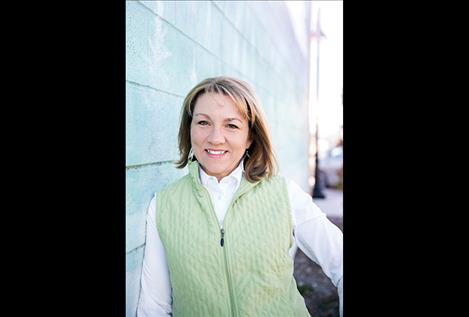Direct primary care clinic to open in Polson
Hey savvy news reader! Thanks for choosing local.
You are now reading
1 of 3 free articles.
It is no secret that health insurance can be confusing, expensive, and impersonal. Local doctor Cara Harrop will provide an alternative to that system when she opens a pureHealth DPC, a direct primary care clinic, in Polson this summer.
Harrop has practiced family medicine in the Mission Valley for 14 years, at Tribal Health, Providence Family Health Clinic and St. Luke Community Healthcare. About a year ago, Harrop took leave to pursue a master’s degree in healthcare innovation. She explained that she chose to pursue another degree because she was experiencing burnout as a physician.
While studying, Harrop looked closely at the healthcare field and reflected on her own experience. She concluded that the central flaw in today’s healthcare system is insurance.
Identifying the need for change
Harrop cited a variety of reasons the health insurance system harms doctors and patients. From a doctor’s perspective, working with insurance companies is time intensive. Physicians spend up to a third of their time on administrative tasks related to insurance billing. These added administrative duties contribute to doctor burnout and in 2012 46 percent of physicians reported some symptoms of burnout. Most importantly, the time spent justifying care to insurance companies reduces the amount of time doctors can spend with their patients.
Harrop said she became a family doctor to work closely with patients in order to keep them healthy and feels the role insurance plays in diminishing that time is frustrating. The average visit with a physician includes only 7-minutes of face time with the doctor – a factor that contributes to patient dissatisfaction and medical errors.
In addition to being unsatisfied with their medical care, many people remain uninsured because they cannot afford to pay for health insurance. The uninsured rely on the most expensive type of healthcare: emergency care. Because those without health insurance often do not seek out preventative care, they are more likely to have medical emergencies. When an uninsured patient cannot pay for their emergency treatment, that cost is often shifted to the taxpayer. Even those who are insured often cannot afford to use their insurance, because their deductibles are so high. The average health insurance plan, under the Affordable Care Act, requires patients to pay for $4,000 of their medical costs before insurance even begins covering costs.
A local solution
Harrop decided that in order for her to continue practicing medicine and avoid the faulty health insurance system, she would open a direct primary care clinic. DPC offices are independent doctors’ offices that do not accept insurance. Instead, patients pay a monthly “membership fee” to gain unlimited access to their primary care physician. This monthly fee covers all primary care costs. Patients are not billed per doctor visit, as they would be through an insurance plan.
“You could come in every day for that one cost,” Harrop said.
Harrop’s clinic, pureHealth DPC, will be located in Polson. The cost will be $75 per month for an adult. Harrop will perform all the functions of a primary care physician including: preventative care, diagnosis and treatment of some medical conditions, physicals, and even minor surgical procedures.
Harrop said that pureHealth DPC will be “a homey place to get healthcare needs met by people who want to be there.”
DPC does not eliminate the need for insurance in case of medical emergencies. Instead, it attaches a fixed cost to primary care, making visits to the doctor more accessible. This encourages patients to visit the doctor more regularly for preventative care and diagnosis. Harrop recommends that her patients have a catastrophic medical plan or are part of a cost-sharing health ministry, so that the costs of medical treatment outside of the scope of her primary care practice is covered.
In an analogy about DPC, Harrop likened healthcare to car care. Car insurance, like medical insurance or a cost-sharing health ministry, covers high cost catastrophes. A DPC covers regular healthcare “maintenance” the way car owners absorb the cost of oil changes and gas.
PureHealth DPC will also differ from primary care clinics located in hospitals in other ways. Harrop’s DPC will offer preventative programs such as exercise classes and group learning experiences focused on improving health. Harrop said she wants her practice to bring people together to improve their health.
“Health is realized with a community of people with a shared experience,” she said.
Harrop will be far more available to her patients than the typical primary care doctor. She said that while the average family doctor has more than 2,000 patients, she will cap her practice at 600 patients. Her appointments will be 30 or 60 minutes long – far longer than the average appointment with a primary care physician. Harrop believes these factors will allow her to form strong relationships with her patients thus improving the quality of their care.
In case of emergency, Harrop will be available 24 hours a day.
Those interested in joining pureHealth DPC can visit purehealthdpc.com. Prospective patients can leave their name and contact information in order to receive email updates about the practice. Harrop’s pureHealth DPC will open in late June or early July.
















